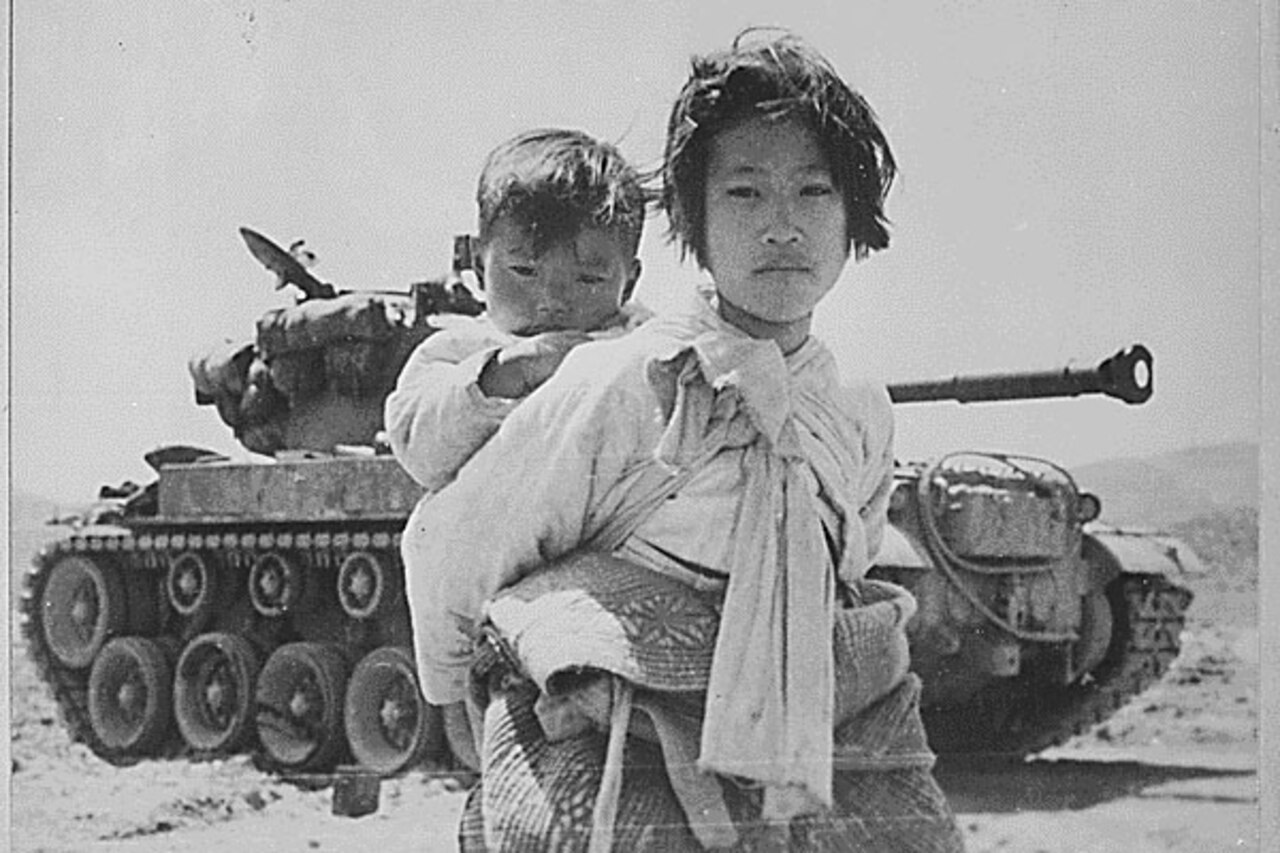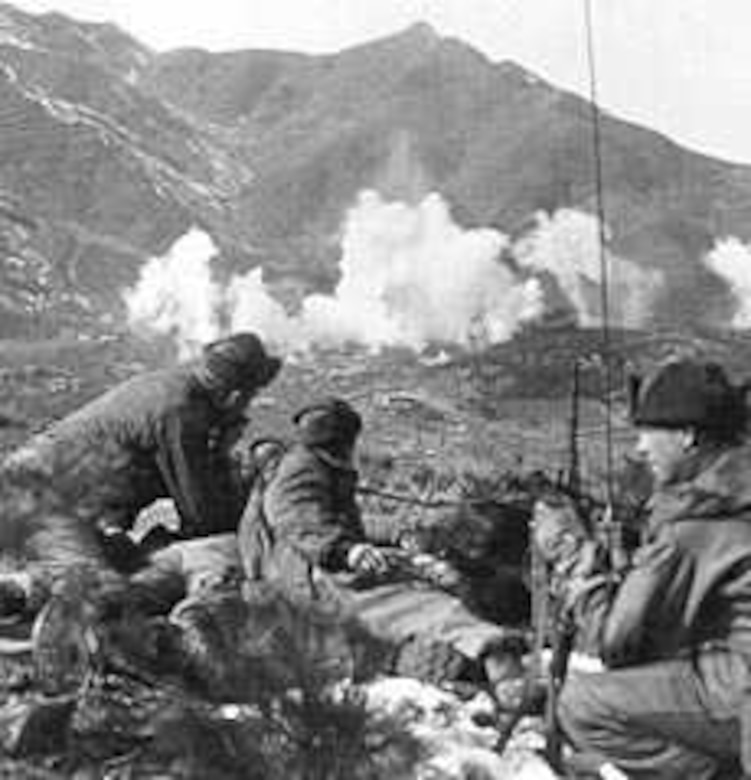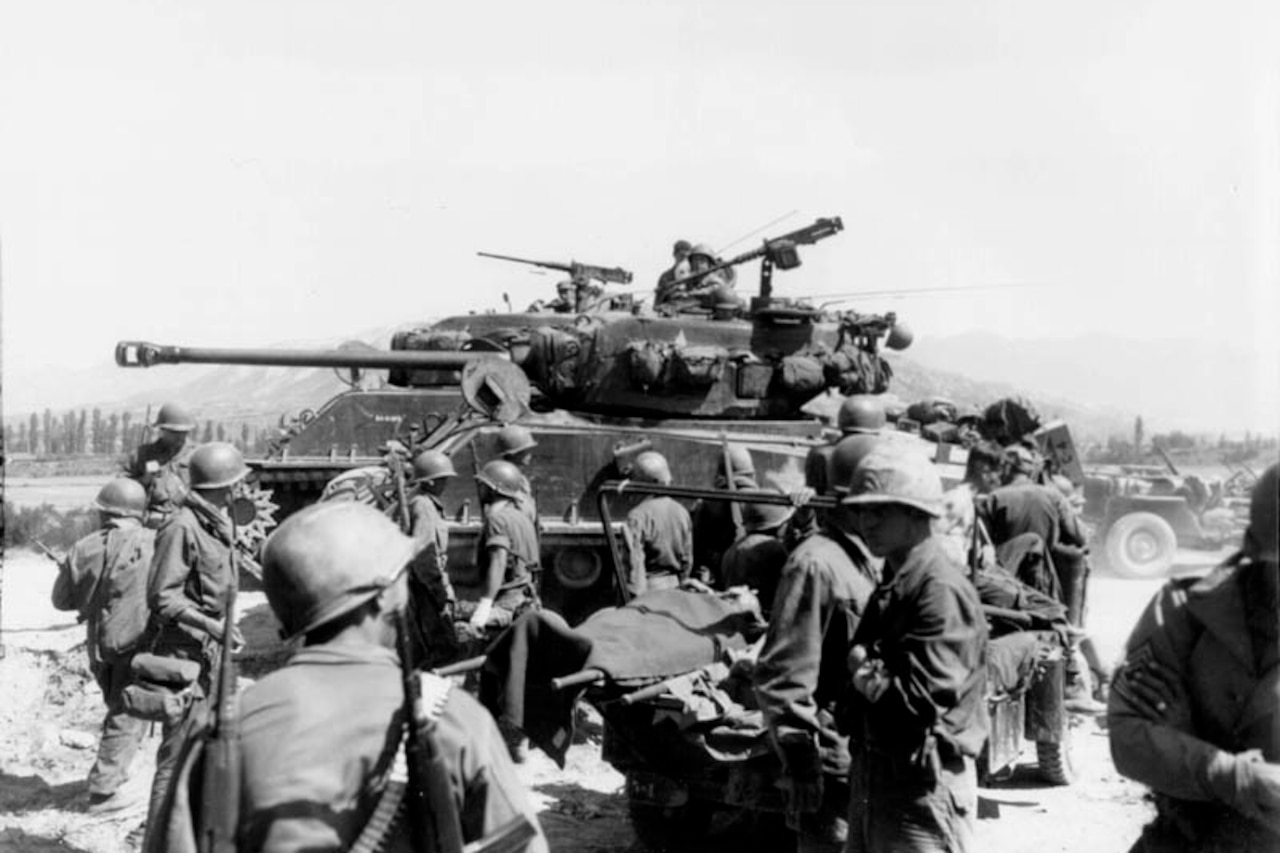On June 25, 1950, North Korean troops exploded over the 38th parallel and invaded South Korea.
Over the next three years, more than 1.5 million U.S. service members deployed to South Korea to — as inscribed on the National Korean War Memorial in Washington — "defend a country they did not know and a people they never met." A total of 33,686 U.S. service members made the ultimate sacrifice in three years of combat.

The quote on the Korean War Memorial may have been true in 1950, but it is no longer the case. The shift mirrors the breadth and depth of the U.S.-South Korea alliance, David Helvey, the acting assistant secretary of defense for Indo-Pacific security affairs, said. Helvey participated in a virtual Republic of Korea-United States Strategic Forum hosted today by the Center for Strategic and International Studies.
"Now, we know Korea. We know Korea deeply," Helvey said. "We know the Korean people, we have deep and extensive people-to-people ties based on a long, rich history of our alliance relationship that extends far beyond the defense aspects of the relationship."
From K-Pop to Hyundais in U.S. driveways to the tens of thousands of Korean immigrants in the United States, the relationship has grown over the past 70 years and, in many ways, become culturally seamless.
The security side is just as intertwined. More than 28,000 U.S. service members are based in South Korea. South Korean soldiers fought alongside American soldiers again during the Vietnam War, in Afghanistan and in Iraq.

"Our defense alliance with Korea today, militarily speaking, is truly unique," Helvey said. "[It is] one of the most capable and one of the most effective alliances precisely because of those deep bonds and ties that we have. … The interoperability that that combined force creates and the capabilities that that combined force brings not only to ensuring deterrence, … but also [to] our ability to work together in service of our combined shared objectives globally."
South Korea and the United States have common values, Helvey said: support for free markets, civic engagement, democracy and liberty.
An example of the two democracies working together that is particularly relevant today is the cooperation to secure global health and to counter biological threats. "I think the COVID environment that we're in today kind of underscores the foresight that the leadership of both countries put into that new frontiers agenda in 2015," Helvey said. "But there [are] other areas as well — science and technology, collaboration, space and cyber. These truly are at the cutting edge of where this alliance can be and should be. I think this is an area where we need to continue moving."

In 1950, South Korea was an importer of security, Helvey noted. Today, it is an exporter, working with nations around the world to provide security for people they perhaps don't know.
Helvey said he would like to see a greater South Korean-Japanese cooperation in the future. This could have a great impact on deterrence in the region, he added.
"I think we need to continue working with our [South Korean] allies to identify and address future security challenges to both of us, as well as to the region more broadly, including how we can work together to support rules-based international order, how we can support things like freedom of navigation," he said. "I think there's room for us, as an alliance, to be able to work on how we can cooperate in terms of our security cooperation and capacity building of third parties."








No comments:
Post a Comment